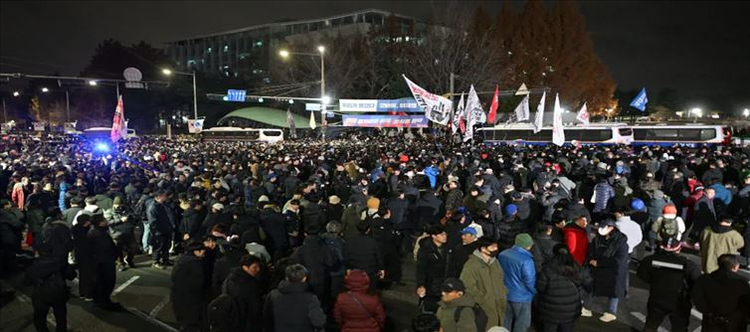
In a strikingly dramatic move, South Korea's President Yoon Suk Yeol declared emergency martial law on tuesday night, citing imminent threats from north korea and lambasting domestic opposition forces. This marked the first such declaration in the country since 1980, sparking immediate controversy. However, in an unprecedented reversal, the martial law was withdrawn within six hours. This whiplash decision has drawn parallels to similar abrupt policy reversals in other democracies, including india, where political decisions have often been dramatically reversed under intense public or parliamentary pressure.
South Korea’s Night of Chaos
President Yoon’s late-night television address justified the declaration of martial law on the grounds of "safeguarding a liberal South Korea" from North Korea’s threats and "anti-state elements." He accused the opposition Democratic Party, which controls parliament, of sabotaging governance for political gains, such as impeachment maneuvers and shielding their leader from justice.
Yet, within hours, the National Assembly’s demand for its withdrawal forced the president to revoke the order. “We have withdrawn the military that was deployed for martial law operations,” Yoon announced in a second televised address, signaling a quick retreat under legislative and public scrutiny.
India’s Brush with Political Reversals
While india has not seen martial law in its modern democratic history, it has experienced its share of abrupt policy U-turns. For instance:
- The Emergency Period (1975-77): Declared by prime minister Indira Gandhi, India’s Emergency mirrored South Korea’s martial law in suspending civil liberties and curbing opposition. Though lasting nearly two years, the measure faced eventual public rejection, leading to Gandhi's electoral defeat.
- Farm Laws Repeal (2021): prime minister Narendra Modi’s controversial agricultural reform laws were met with widespread farmer protests. Despite initially defending the laws, the government repealed them after a year, bowing to public and political pressure.
- Demonetization Aftermath (2016): While not reversed, the implementation of India’s demonetization policy was marked by chaotic changes in rules and directives, reflecting a reactive governance style under intense public scrutiny.
Lessons from Quick Reversals
Both south korea and india showcase how democratic systems can pressure leaders to reassess and retract contentious decisions. South Korea’s martial law withdrawal underscores the power of legislative pushback, while India’s policy U-turns highlight the role of mass movements and public sentiment.
In both cases, these incidents reveal the delicate balance leaders must strike between authority and accountability in democracies. President Yoon’s fleeting martial law declaration has ignited debates on governance in crisis, drawing stark reminders of the cost of political overreach and the resilience of democratic institutions in tempering executive power.




 click and follow Indiaherald WhatsApp channel
click and follow Indiaherald WhatsApp channel